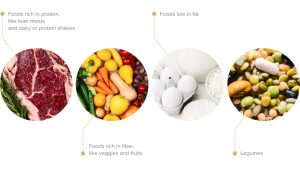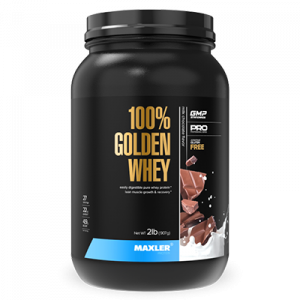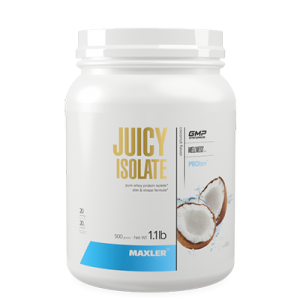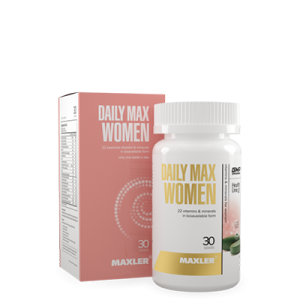Have you ever heard that you should only eat 1000 calories a day if you want to lose weight and remain slim? Have you ever questioned why some people eat so much when they have their ideal body? Consuming enough calories to feel good and support your goals is important. In this post, we’ll cover the basics of calorie intake, its importance, and how to adjust it to fit your goals.
The importance of calorie intake
Calories can be a scary word for some, but they are just another fact of life. To make them sound less scary, let’s formally define calories.
A calorie is a unit of energy, and it is used to estimate the amount of energy needed to raise the temperature of a gram of water by 1o Celsius. Doesn’t sound too scary now, does it?
The calories on food packs are typically kilocalories, so thousands of calories. But we still refer to them as calories. Since calories are a unit of energy, they help us understand how much energy a food provides.
Therefore, the main importance of calorie intake is to ensure that you supply your body with enough energy to keep all processes running smoothly. If you overdo it with calories, you start storing weight. Conversely, not eating enough will cause weight loss and may result in malnutrition.
So, how can you hit the sweet spot in the daily intake of calories for a woman?
How many calories should women eat a day?
Before we get into the rest of this post, remember one key thing while you’re reading it. Our bodies are all unique. How we process foods or how easily we put on or lose weight is unique to each woman. While the recommendations in this post may help some people, they may be too much or too little for others.
Your overall calorie requirements will depend on many factors, including your age, day-to-day activity levels, and body build. This post covers the average calorie requirements, so you may need to adjust the numbers accordingly.
When determining the daily calorie requirement for a woman, we need to understand how much energy her body uses.
There are three main ways our body spends energy:
- Keeping up life functions – this is called our basal metabolic rate.
- Digesting food – this is our diet-induced energy expenditure.
- Activities like sports or tapping our feet are our activity-induced energy expenditure.
We measure all of these in calories; if we add them, we get the required number of calories for a woman. This helps us understand how much energy your body needs daily to function well. The recommended average intake of calories for a sedentary woman in the USA is around 1800 calories. This increases to 2000 if you’re moderately active.
Putting a number on a woman’s required calories a day can be hard. There are a few ways to help you determine this number.
You can try an online calculator, like the NIH body weight planner. It will be able to approximate the number of calories your body requires. Alternatively, you can use body composition scales in your gym to help you get a more precise look at your energy requirements.
You can also calculate how many calories you consume in a week by using a food diary. This approach works well if you’re not currently gaining or losing weight. Once you have the total amount, you can divide it by 7 to get your approximate daily requirement.
Finally, you can enlist the help of a professional. They will be able to provide recommendations, especially if you would like to change your weight. They can help you assess your diet as well and provide helpful tips on making healthier changes.
How many calories should women eat to maintain a healthy weight?
How many calories allow a woman to maintain weight? If you’re not looking to gain or lose weight, you should eat the number of calories that allow your body to function well. This will typically be the sum of the three components that make up our energy expenditure.
On average, around 1800-2000 calories will be enough for a sedentary to moderately active woman. If you’re highly active, 2200 calories can be sufficient. If you’re an athlete, your calorie intake may be even higher depending on your discipline.
To maintain a healthy weight, you should consume the same number of calories as you burn during the day. Don’t worry about some days of under- and overeating—if your weekly averages are okay, you’re on the right track.
How many calories should women eat to gain weight?
If you’re trying to gain weight, you should eat more calories than you spend. You can increase your daily calorie consumption by 300-500 calories depending on how much you’re trying to gain. This can lead to a gradual increase in body weight. However, if you would like fast results, you can go up by up to 1000 calories a day.
Depending on your body composition goals, you may want your new kilograms to be muscle rather than fat. If that’s the case, it’s a good idea to consume some extra protein alongside resistance training, as protein helps muscle growth. Increasing your carbohydrate intake can support extra calorie intake.
You may also benefit from consuming healthy energy-dense foods like nuts, dried fruits, oats and healthy fats.
How many calories should women eat to lose weight?
If you’ve gained or are actively gaining weight, chances are you’re consuming more calories than you’re burning. So, how many calories are required for a woman to lose weight?
If weight loss is your goal, you will likely need to decrease your current calorie consumption by anywhere between 500-700 calories a day. However, make sure that your daily calorie consumption does not fall under 1200 calories without medical supervision.
You must eat a healthy and balanced diet during weight loss. While calories from foods are helpful in understanding energy density, they say nothing about the nutrients inside a food. Many healthy foods contain micronutrients that can benefit weight loss. So, don’t fall into the trap of thinking that you can just eat less high-fat foods and lose weight quickly.
How to reduce calorie intake
You can reduce the daily intake of calories by eating more low-energy-density foods. These things fill you up but don’t have that many calories. Good examples are:
- Foods rich in protein, like lean meats and dairy or protein shakes
- Foods rich in fiber, like veggies and fruits
- Foods low in fat
- Legumes
In addition, protein and fiber can help you feel satiated, which can help with weight loss efforts.
How many calories should women eat for breakfast, lunch or dinner?
Once the daily calorie requirement for a woman is clear, you can decide how to split that across your day. For someone who consumes 1800 calories a day across 3 meals, that may look like around 600 calories per meal.
However, many of us like having snacks between meals. Therefore, you may have around 400 calories for breakfast, 500 calories for lunch and dinner, and 200 calories for snacks.
What’s most important is that you spread your daily intake of calories for a woman in a way that is most useful to you. Some people prefer a lighter breakfast. Others prefer a light dinner. Some may want to have five small meals during the day instead of three big ones. Play around with different breakdowns to find out what works for you.
You may be better off consuming the main part of your calories earlier in the day, especially if you’re trying to lose weight.
How many calories should women eat a day by age?
As we age, our bodies change. How we use energy and how much energy we need also change. The recommended calories for a woman also change, so it’s important to note how calorie intake changes with age.
For sedentary non-pregnant women, the Dietary Guidelines for Americans 2020-2025 report suggests that:
- Women aged 18 should consume 1800 calories
- Women aged 19-25 should consume 2000 calories
- Women aged 26-50 should consume 1800 calories
- Women aged 51 and up should consume 1600 calories
Alongside this, it’s important to note that if you’re pregnant or lactating, your calorie requirements will change as well. Women in the first trimester don’t need many extra calories. Those in their second trimester can add around 340 calories, and those in their third – 452 calories.
Those lactating also need additional calorie support. Your daily calorie intake can increase by 330 calories for your first six months of lactation. For the second six months, it can increase up to 400 calories. Remember, however, that these estimates are for women with a healthy pregnancy weight. Therefore, you may need to adjust those calories depending on how pregnancy affects your body.
Women’s nutritional supplements
No matter your nutritional goals, you should aim to meet your goals using whole foods. This can help you ensure you’re getting all the nutrients that you need, from macronutrients like protein to micronutrients like vitamins. However, planning a healthy diet can be challenging, no matter whether you’re losing, maintaining, or gaining weight. Supplements can help make that journey better and support you when you need it the most.
What supplements can benefit women trying to change their body composition?
Your weight loss or weight gain is as dependent on calories as what they consist of. Protein is a key nutrient that people trying to improve their body composition need. Protein supports muscle mass, helps with weight loss, and can be used for healthy weight gain.
Protein can be easy to get from foods. But when you need to eat a lot of it, constantly munching on things to meet your requirements can get tedious. Protein supplements can be a great help here.
For example, Maxler Juicy Isolate can provide 20 grams of protein with few calories and a great, juice-like texture. Alternatively, try our fan-favorite 100% Golden Whey, which provides around 23 grams of protein in each delicious serving.
Increased food intake is essential for those interested in gaining weight quickly. Mass gainers can be an effective way to do so, as they provide lots of calories and protein in a liquid form. Try Maxler Special Mass, which boasts quality protein and plenty of calories.
Finally, it’s important to remember that micronutrients are essential no matter your calorie intake. If you’re trying to support your body’s functions but are limiting particular foods or are on a busy schedule, a multivitamin can be a great option. Maxler Daily Max Women is a great formula to support your micronutrient intake. If you’re very active, VitaWomen can provide large micronutrient doses alongside additional herbal ingredients for female health.
Calories are an essential part of our food intake. They help us understand how much energy is in foods. Understanding their importance and how to change your calorie consumption is an excellent step towards the body of your dreams. No matter your goals and lifestyle, you can become the person you want to be with a bit of hard work and patience. Keep going where you need to, and Maxler will support you at every step.












